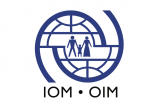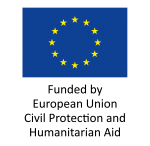This dashboard is an interactive tool to help humanitarian organizations better plan their communication strategies and language support.
Developed by Translators without Borders, in cooperation with the International Organization for Migration’s (IOM) Displacement Tracking Matrix (DTM) team in Maiduguri, the dashboard can help aid workers make data-informed decisions to communicate with and support the crisis-affected populations more effectively.
Some key highlights of the data include:
- Kanuri is the most widely spoken primary language, yet there are only 524,000 internally displaced people (IDPs) receiving information from responders speaking primarily Kanuri.
- Fourteen percent of the population (260,000 people) were at sites reporting serious problems due to lack of information.
- Marghi-speaking sites are especially information-vulnerable, with 51 percent of respondents reporting a serious problem due to lack of information.
- The state of Adamawa has the starkest information gaps: 24 percent of key informants reported a serious problem due to lack of information. The main topic of information requested by IDPs in Adamawa is related to distributions of aid.
- Over 70 percent of sites report that they prefer to receive information over the radio, yet the vast majority of sites report that less than 50 percent of households have access to a functioning radio.
To create the dashboard, TWB worked with IOM to add language-specific indicators to ongoing data collection efforts at IDP sites. The data is collected from key informants throughout the conflict-affected northeast of Nigeria and is based on their insight into communication at specific sites. This methodology, while offering the significant benefit of scale, can result in populations appearing more homogeneous than they are. For example, if an informant from a site answered “Kanuri” to a question on primary language spoken, the dashboard displays the sum of households and individuals for that site as all speaking Kanuri. This is likely not to be the case, as other research by TWB found individual sites to be linguistically diverse. However, it is the most accurate picture currently available.
 The dashboard is a living tool and is updated as new rounds of DTM data are made available. IOM’s entire DTM dataset and data collection methodology can be found on their website and interactive map portal. Current data is from the DTM Round 24 (August 2018).
The dashboard is a living tool and is updated as new rounds of DTM data are made available. IOM’s entire DTM dataset and data collection methodology can be found on their website and interactive map portal. Current data is from the DTM Round 24 (August 2018).
For questions about this dashboard or other TWB Maps data collection and visualization efforts, please contact us at: maps@clearglobal.org.
For questions about language support in northeast Nigeria, please contact nigeria@translatorswithoutborders.org.
This publication has been financed by the European Union, through the European Commission’s Civil Protection and Humanitarian Aid department (ECHO).

The European Union and its Member States are a leading global donor of humanitarian aid. Through the European Commission’s Civil Protection and Humanitarian Aid department (ECHO), the EU helps over 120 million victims of conflict and disasters every year. With headquarters in Brussels and a global network of field offices, ECHO provides assistance to the most vulnerable people solely on the basis of humanitarian needs, without discrimination of race, ethnic group, religion, gender, age, nationality or political affiliation. The views expressed in this document should not be taken, in any way, to reflect the official opinion of the European Union. The European Commission is not responsible for any use that may be made of the information it contains.